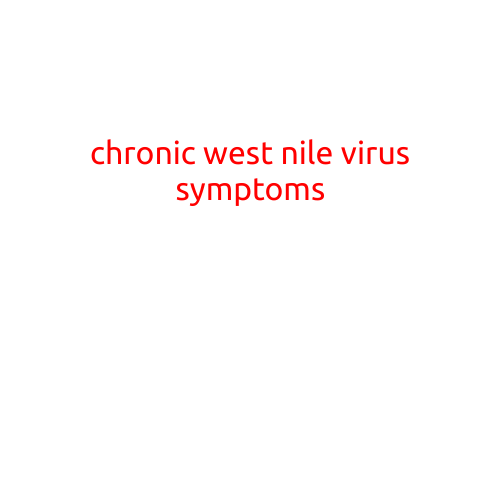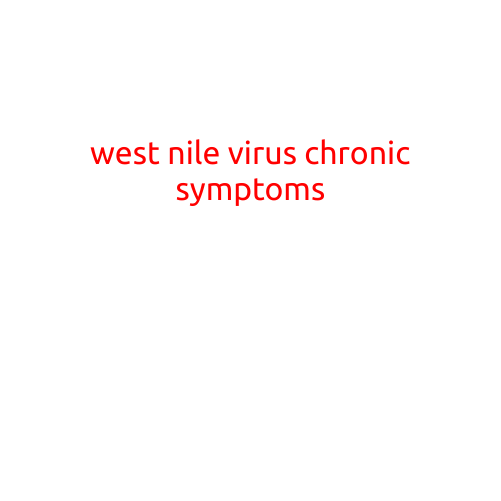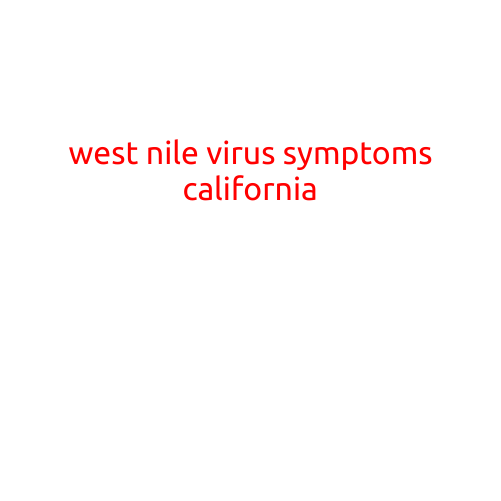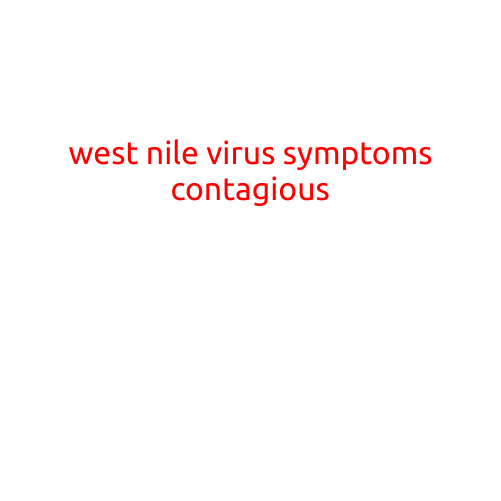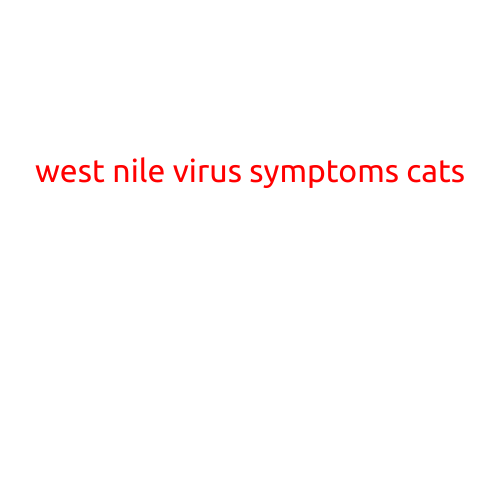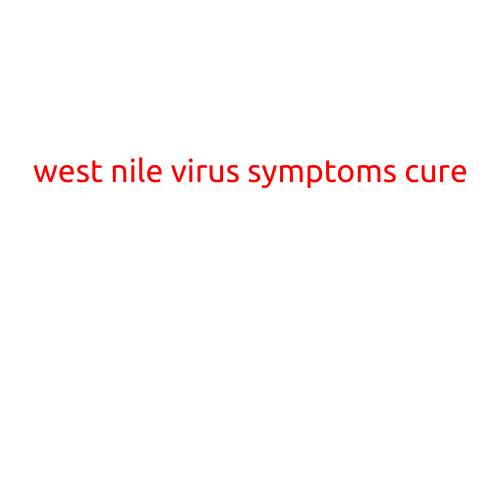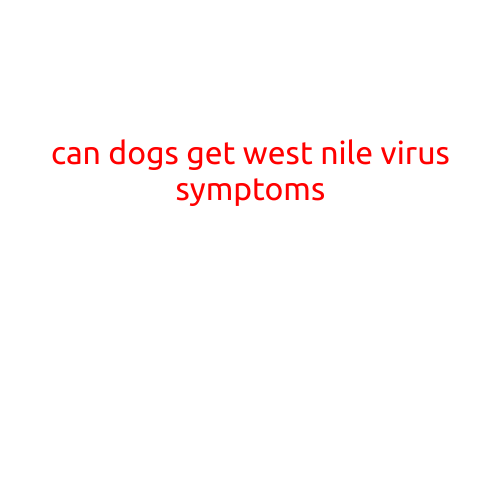
Can Dogs Get West Nile Virus Symptoms?
West Nile virus (WNV) is a potentially deadly virus that affects humans and animals alike. While it is most commonly reported to occur in humans, dogs can also contract the virus, although the risk is relatively low. In this article, we’ll delve into whether dogs can get West Nile virus symptoms and what pet owners can do to protect their furry friends.
How Do Dogs Contract West Nile Virus?
Dogs can contract WNV through the bite of an infected mosquito. Mosquitoes that carry the virus can transmit it to dogs through their saliva, which enters the dog’s bloodstream during the mosquito’s bite. Dogs can also contract WNV indirectly by ingesting a mosquito that has itself fed on an infected animal.
Canine West Nile Virus Symptoms
The symptoms of WNV in dogs are similar to those seen in humans, and may include:
- Encephalitis (inflammation of the brain): This is the most common symptom of WNV in dogs, and can cause seizures, tremors, and changes in behavior.
- Meningitis (inflammation of the lining around the brain and spinal cord): This can cause pain, stiffness, and swelling in the neck, back, and limbs.
- Fever: Dogs with WNV may experience a high fever, often above 104°F (40°C).
- Lethargy: Infected dogs may become lethargic and disinterested in their surroundings.
- Seizures: Some dogs may experience seizures, often as a result of encephalitis.
- Paresis (weakness or paralysis): This can cause a dog to lose coordination, become weak, or experience paralysis in the face, legs, or tail.
How Long Does It Take for Symptoms to Appear?
The incubation period of WNV in dogs is typically 2-14 days, although it can take up to 21 days for symptoms to become apparent. The virus is most likely to cause severe illness in dogs if it is not detected and treated promptly.
Diagnosing WNV in Dogs
Diagnosing WNV in dogs can be challenging, as the symptoms are similar to those of other conditions. Your veterinarian may perform the following tests to confirm a diagnosis:
- Complete Blood Count (CBC): This test measures the number and types of cells in your dog’s blood, which can help identify changes characteristic of WNV.
- Blood chemistry tests: These tests evaluate the levels of various substances in your dog’s blood, which can help identify changes indicative of WNV.
- Imaging tests (e.g., MRI, CT scan): These tests can help rule out other conditions that may cause similar symptoms.
- Lumbar puncture: This involves collecting a sample of cerebrospinal fluid to examine for signs of WNV.
Treating WNV in Dogs
While there is no specific treatment for WNV in dogs, supportive care can help manage symptoms and improve outcomes. This may include:
- Fluid therapy: Administering fluids intravenously to help maintain hydration.
- Pain management: Providing pain relief medication to help manage discomfort.
- Anticonvulsant medication: Treating seizures with medication.
- Infection control: Managing the dog’s environment to prevent re-infection.
Preventing WNV in Dogs
Preventing WNV in dogs involves taking steps to reduce the risk of mosquito bites. Some ways to do this include:
- Eliminating standing water: Remove sources of standing water around your home, such as pet water dishes, flower vases, and clogged drains.
- Using insecticides: Apply insecticides to areas where mosquitoes are likely to be present, such as around the yard and in your dog’s living space.
- Maintaining a clean yard: Keep your yard free of debris, leaves, and other materials that can attract mosquitoes.
- Wearing protective clothing: When spending time outdoors, wear protective clothing, such as long sleeves and pants, to reduce the risk of mosquito bites.
Conclusion
While the risk of WNV in dogs is relatively low, it is still important for pet owners to be aware of the possibility of infection. By understanding the symptoms, diagnosis, treatment, and prevention methods, you can help protect your furry friend from the potentially deadly consequences of West Nile virus. If you suspect your dog has contracted WNV, consult with your veterinarian immediately.
